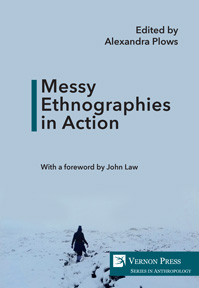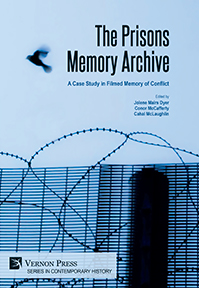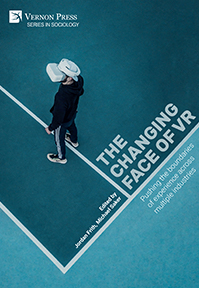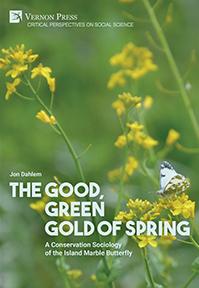Pitirim A. Sorokin: Rediscovering a Master of Sociology
by Emiliana Mangone (University of Salerno, Italy)
Purchase this book
(click here to change currency)
This book is a historical and sociological study of the ideas of the outstanding Russian American sociologist Pitirim Sorokin. In a relatively small book (which is its undoubted virtue), his ideas are presented in a clear manner, along with biographical facts. The book consists of three parts and eight chapters. At the beginning, we are introduced to a biographical lapidary sketch, which the author justifiably divides into two main parts - the Russian period and the American period, which is not a simplification but makes the perception of the development of the social thinker's ideas clearer and more coherent. Then some works of the American period are disclosed, including very controversial ones, including the general theory of socio-cultural dynamics by P. Sorokin, which is one of the most important theories of cultural development in the twentieth century. In the third part, the author considers Sorokin's ideas, first of all, those of altruistic love, in the context of global problems, conflicts, and catastrophes.
The book is valuable for the younger generation of sociologists, as it addresses the rediscovery of the ideas of the classic sociology, which have been undeservedly forgotten or ignored in research and publications. In this way, the book contributes to the continuity of sociological theory and sociological education. Today Sorokin's ideas have become relevant and even topical again since Sorokin, as the author points out, was formed as a scholar in an era of social upheaval in Russia and became a prominent theorist of revolution and humanitarian catastrophes and at the same time a scholar who passionately sought a way out of the crisis of modern civilization through a revival of altruism and brotherly love. Throughout the book Emiliana Magnone solves several sociological "puzzles": why the Russian-born social thinker had such an impressive career, why he remained a "stranger" in American sociology, why he turned to "positive" social phenomena - solidarity, altruism, brotherly love, friendship, the revival of spiritual values - even though he witnessed dramatic social and political events.
The book is a truly fundamental study - it fully and clearly presents Sorokin's theory and methodology in the form of an integral picture of culture and society and a mixed integral method of research, establishes the connection between Sorokin's ideas and other sociological traditions, reveals interesting biographical facts (in particular, in a very interesting chapter on P. Sorokin and T. Parsons relations, which are considered not in terms of sympathy and antipathy but in terms of development of sociological knowledge and institutionalization of the discipline), and is based on the most important sources on P. Sorokin's work.
The author of the folio observes all the norms of academic ethics and neutrality, so the book is genuinely interesting. Much about Sorokin's work and his biography is already known, but the book is of interest to Russian researchers, too, who often miss the details of the American period of his career. The fundamental novelty of this book is the consideration of Sorokin's work in the contemporary global context - global crises, epidemics, and war, which is obviously necessary for all and not only for sociologists.
Prof. Dr. Olga A. Simonova
Faculty of Social Sciences,
School of Sociology,
Department of General Sociology,
Academic Supervisor of the School of Sociology at the National Research University,
Higher School of Economics, Moscow, Russia
Pitirim A. Sorokin is a controversial figure in the history of sociology, of which he remains one of the masters. Those who read Sorokin today must, however, frame the historical reality experienced by the scholar (his Russian and American experiences) because the evolution of his thought had several phases that correspond to his personal, family, and professional lives (he founded and directed the Department of Sociology at Harvard University for many years). This Russian-American sociologist argued that socio-cultural phenomena must be studied following their dynamism (in space and time) since the constituent elements (personality, society, and culture) are constantly changing and cannot be studied separately.
Reviving his thought is not a form of celebration but a moment to reflect on how some sociology classics still have their relevance and how, all too often, they are forgotten. This is why this book takes up his main conceptualizations by anchoring them to contemporary society, whose transformations are often difficult to read, and above all to highlight how the role of sociology as a science has, in part, lost sight of its ontological foundation as a service to humanity or public service.
The theoretical paths taken by Sorokin range from Social and Cultural Dynamics to Social Mobility and to many other topics, such as man and society in calamities or love and altruism - one of Sorokin's latest topics. All these topics can revive the idea of a sociology that holds together the micro, meso, and macro dimensions and allows us to predict changes in society.
Preface
The Complexity of Pitirim A. Sorokin’s Studies and Reasons for “Rediscovering” them
Part 1. Life Experiences and Ideas
Chapter 1 Pitirim A. Sorokin: A Russian or American Spirit?
The biography of an eclectic intellectual between two revolutions
Pitirim A. Sorokin and the Russian Revolution
Pitirim A. Sorokin and the sexual revolution
Sociologist, Philosopher or Integral scientist?
Pitirim A. Sorokin and his “positive sociology”: Amitology
Chapter 2 Sorokin and Integralism (or Integral Theory of Knowledge)
The boundaries of sociology (or the object of its studies)
Sorokin forerunner of an integral social science?
Sorokin’s sociology of knowledge
Integralism (or integral theory of knowledge)
Chapter 3 Parsons and Sorokin at Harvard: The Social Construction of a Conflict
The Americanisation of the social sciences
Parsons and Sorokin at Harvard University: David vs Goliath?
“Similarities and Dissimilarities” and the consequences of its dissemination
An Intellectual or political clash?
Part 2. Social and Cultural Dynamics 73
Chapter 4 Social and Cultural Change
Stratification and social mobility
Rural and urban sociology
The American sexual revolution
Chapter 5 The Cyclic Systems Theory and the “Indivisible Trinity”
The cyclic systems theory
The personality as a subject of interaction
Culture as a product of interaction
Society as a place of interaction
Chapter 6 From Crisis to Ways to “Reconstruct” Humanity
From diagnosis of the crisis to remedies
Disasters and the law of diversification and polarisation of effects
A path to “reconstruct” humanity
Part 3. Social Resolution of Global Conflicts
Chapter 7 Revolution, War and Peace
From revolution to peace
Causes and factors for war and peace
Pitirim A. Sorokin pioneer of peace research
Chapter 8 The Power of Love: The Creative Altruism
Harvard Research Center in Creative Altruism
The altruistic creative love
The techniques of altruisation or socialisation to altruism
From tribal egoism to universal altruism
Postface
Transposition and Topicality of Pitirim A. Sorokin
References
Index
Emiliana Mangone is an Associate Professor of Sociology of Culture and Communication at the Department of Political and Communication Sciences, University of Salerno, Italy. She is the Director of the Narratives and Social Changes-International Research Group (2020-2026), and she was the Director of the International Centre for Studies and Research on "Mediterranean Knowledge" (2015-2020). Her main investigative interests are in the field of cultural and institutional systems, with particular attention to the social representations, relational processes, and knowledge as key elements to human action, migration studies, and as well as the study of the thought of Pitirim A. Sorokin. She recently published: 'Narratives and Social Change. Social Reality in Contemporary Society' (Springer, 2022); 'Beyond the Dichotomy Between Altruism and Egoism. Society, Relationship, and Responsibility' (Information Age Publishing, 2020); and 'Social and Cultural Dynamics. Revisiting the Work of Pitirim A. Sorokin' (Springer, 2018). For further information, see her personal page: https://emilianamangone.com/
Sorokin, Sociology, Integral system of knowledge, Culture, Society, Personality, Crisis, Social change, Mobility, Calamities, Altruism, Peace
See also
Bibliographic Information
Book Title
Pitirim A. Sorokin: Rediscovering a Master of Sociology
ISBN
978-1-64889-732-0
Edition
1st
Number of pages
204
Physical size
236mm x 160mm

![Pitirim A. Sorokin: Rediscovering a Master of Sociology [Hardback]](/file/20992/397e6c83c93337df5d46ced762cfc1a5/1687944744.jpg)






